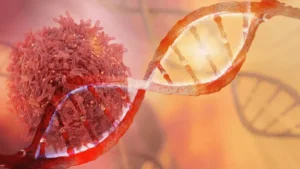Therefore, individuals regularly consuming drinks in excess of these guidelines may be defined as abusing alcohol. Misusing alcohol in one instance may not lead to an alcohol use disorder. However, continuing to abuse alcohol over a period of time will likely lead to an alcohol problem. It’s for this reason that you should strive to avoid alcohol abuse and seek to help people who are battling this issue. In fact, experiencing alcohol withdrawal syndrome is one of the first signs of alcoholism for those who may not have previously seen their drinking habits as a problem.
- Find out what constitutes alcohol abuse, the difference between alcohol abuse and alcoholism and when it might be time to seek professional help.
- These contributors included both experts external to NIAAA as well as NIAAA staff.
- Notably, this update added craving alcohol and eliminated experiencing legal problems as symptoms, and also described a spectrum of mild, moderate, and severe AUD (4).
- Alcohol use disorder (AUD) encompasses alcohol abuse, alcoholism and alcohol dependence.
- In 2019, an estimated 14.5 million people in the United States had an AUD.
Negative Consequences of Alcohol Abuse
As alcohol abuse and alcoholism differ, so do the right treatment options for people with these conditions. Unlike AUD, binge drinking isn’t considered a mental health condition. Still, both patterns of drinking can lead to health concerns and affect your overall well-being and quality of life. Binge drinking, one of these patterns, involves consuming several drinks in a short period of time. An episode of binge drinking can bring your blood alcohol content (BAC) to dangerous, even life-threatening levels.

Presence of Alcohol Withdrawal Symptoms

We use only trustworthy sources, including peer-reviewed studies, board-certified medical experts, patients with lived experience, and information from top institutions. Treatment may involve standard therapies used to treat other mental illnesses, including cognitive behavioral therapy (CBT), which is commonly used to treat depression, among other disorders. The brain experiences the effects of alcohol right away, resulting in changes in mood, behavior, and judgment.
Alcohol use disorder
- Physical signs of alcohol abuse may include frequent hangovers, blackouts, and gastrointestinal problems.
- The National Council on Alcoholism and Drug Dependence and AlcoholScreening.org offer more comprehensive self-tests.
- Contributors to this article for the NIAAA Core Resource on Alcohol include the writers for the full article, content contributors to subsections, reviewers, and editorial staff.
- That said, certain patterns of alcohol use do pose some cause for concern.
- Before you decide to stop drinking, talk to a healthcare provider to determine what treatment options are available and whether you would benefit from medical supervision during detox.
If you’re worried about your drinking habits or witnessing concerning alcohol consumption in a loved one, you’re not alone. One in eight Americans meets the criteria for an alcohol abuse disorder. However, with both what is the difference between alcohol abuse and alcoholism alcohol abuse and alcoholism, these feelings are less effective over time as a person’s drinking habits increase. For people who have alcohol use disorder, stopping their drinking is an important first step.
What puts people at risk for developing AUD?
Read on to learn more about the symptoms, risk factors, treatments, diagnosis, and where to get support. Drinking alcohol too much or too often, or being unable to control alcohol consumption, can be a sign of alcohol misuse and, in some cases, alcohol use disorder (AUD). It was written based on peer-reviewed medical research, reviewed by medical and/or clinical experts, and provides objective information on the disease and treatment of addiction (substance use disorders). Withdrawal symptoms from alcohol dependence can range from irritating to fatal. Anyone struggling to stop drinking alcohol should seek proper supervision, such as a medically supervised detox program. A doctor may also prescribe medications to help you manage withdrawal symptoms and support you in your effort to stop drinking.
By Buddy TBuddy T is a writer and founding member of the Online Al-Anon Outreach Committee with decades of experience writing about alcoholism. Because he is a member of a support group that stresses the importance of anonymity at the public level, he does not use his photograph or his real name on this website. Those with mild to moderate symptoms may receive treatment in an outpatient setting. You should ask a loved one to stay with you during this process, and you may need to visit a clinician for daily monitoring.
- The effects on health can be extensive, including liver disease, cardiovascular problems, and neurological damage, among others.
- Behavioral therapies can help people develop skills to avoid and overcome triggers, such as stress, that might lead to drinking.
- Once you’re well enough to leave, you’ll need to continue to receive treatment on an outpatient basis.
- When you drink too much, your liver has a harder time filtering the alcohol and other toxins from your bloodstream.
- Treatment may involve standard therapies used to treat other mental illnesses, including cognitive behavioral therapy (CBT), which is commonly used to treat depression, among other disorders.
- Alcohol abuse involves a pattern of drinking that results in harm to one’s health, interpersonal relationships, or ability to work.
In some people, the initial reaction may feel like an increase in energy. But as you continue to drink, you become drowsy and have less control over your actions. Alcohol use disorder can include periods of being drunk (alcohol intoxication) and symptoms of withdrawal. A health care provider might ask the following questions to assess a person’s symptoms. It can be hard to see there is a problem even if the drinking is negatively impacting your health and your life. You shouldn’t attempt to drive or operate heavy machinery while under the effects of alcohol.

RehabCenter.net is intended for educational purposes only and is not designed to provide medical advice of any kind. Any information found on RehabCenter.net should never be used to diagnose a disease or health problem, and in no way replaces or substitutes professional care. In the case of a suspected health problem, please contact your healthcare provider.
